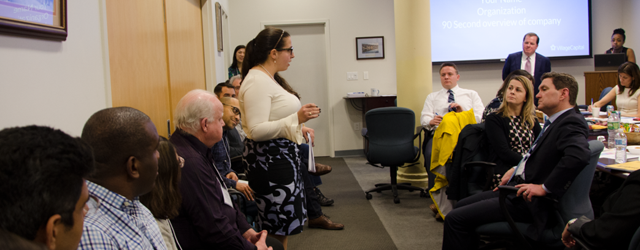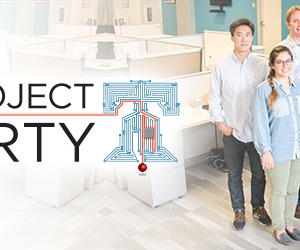Can These Philly Startups Help Bridge the VC Diversity Gap?
 In a hypothetical room filled with 100 venture-backed entrepreneurs, only four are women.
In a hypothetical room filled with 100 venture-backed entrepreneurs, only four are women.
That’s not only the real-life experience of women entrepreneurs: that’s what the statistics say of 2017, a year in which 98 percent of venture capital dollars went to companies founded by men.
Attempting to level the vast gender gap and racial inequality in venture capital is what, in part, what brought D.C.-based Village Capital together with Ben Franklin Technology Partners and UBS to deploy its Pathways program in Philly, the first of three cities where the offering will roll out.
The venture capital firm seeks to connect African-American, Latinx and female founders with three months of hands-on training, mentorship and connections to capital.
Here’s the slate of Philly companies selected for the program (descriptions supplied):
Activest: creates tools in the municipal bond market to advance racial equity for investors and communities.
LOCOMeX, Inc.: offers an integrated AI powered marketplace platform for matching small businesses with contract opportunities.
NaturAll Club: makes hair products using food technology to help women with curly hair get the nutrients their hair needs for less frizz and tangles.
Raise the Barr: an artificial intelligence for enterprise diversity and inclusion training.
STEM Lending: an online loan broker aimed at millennials seeking mortgage and other credit options.
Strados Labs: helps asthmatics better manage their respiratory health and breathe easy.
Tozuda: makers of head impact sensors for concussion awareness.
Vifant: develops solutions for the identification of impaired vision without the need of communication between the tester and the patient.
Vital Start: provides care for newborn babies across the continuum.
WeGardn: connects local organic food suppliers directly to businesses and consumers.
“It was very competitive,” said Ben Franklin’s Margaret Berger Bradley, head of investment partnerships. “We had to cull from 55 applications, many of which were in the environmental, educational, food/agriculture and financial technology sectors we prioritized.”
Read the full article here.




